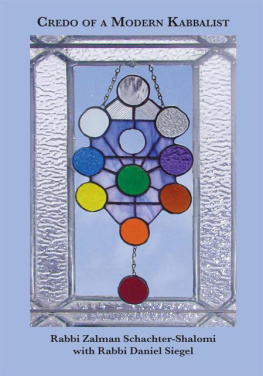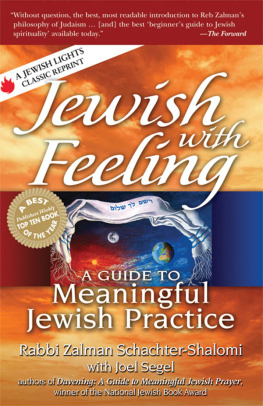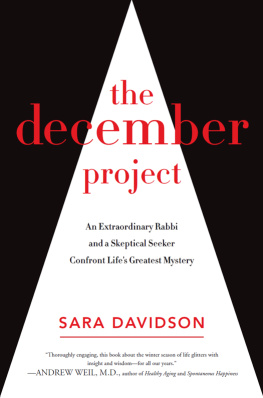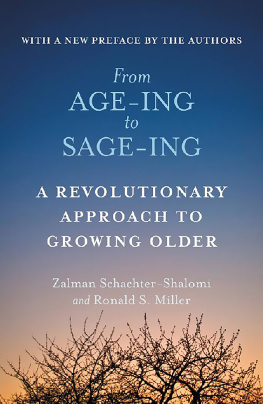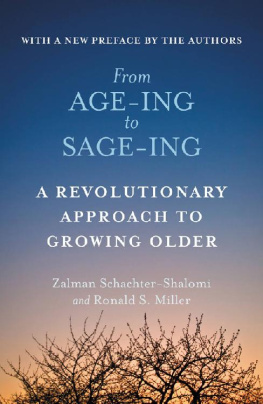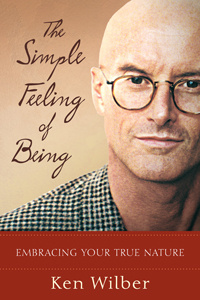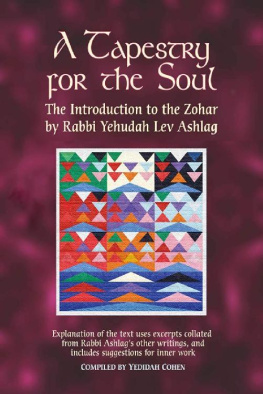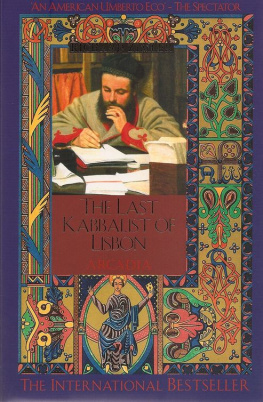Rabbi Zalman Schachter-Shalomi - Credo of a Modern Kabbalist
Here you can read online Rabbi Zalman Schachter-Shalomi - Credo of a Modern Kabbalist full text of the book (entire story) in english for free. Download pdf and epub, get meaning, cover and reviews about this ebook. year: 2006, publisher: Trafford Publishing, genre: Religion. Description of the work, (preface) as well as reviews are available. Best literature library LitArk.com created for fans of good reading and offers a wide selection of genres:
Romance novel
Science fiction
Adventure
Detective
Science
History
Home and family
Prose
Art
Politics
Computer
Non-fiction
Religion
Business
Children
Humor
Choose a favorite category and find really read worthwhile books. Enjoy immersion in the world of imagination, feel the emotions of the characters or learn something new for yourself, make an fascinating discovery.
- Book:Credo of a Modern Kabbalist
- Author:
- Publisher:Trafford Publishing
- Genre:
- Year:2006
- Rating:4 / 5
- Favourites:Add to favourites
- Your mark:
- 80
- 1
- 2
- 3
- 4
- 5
Credo of a Modern Kabbalist: summary, description and annotation
We offer to read an annotation, description, summary or preface (depends on what the author of the book "Credo of a Modern Kabbalist" wrote himself). If you haven't found the necessary information about the book — write in the comments, we will try to find it.
Credo of a Modern Kabbalist — read online for free the complete book (whole text) full work
Below is the text of the book, divided by pages. System saving the place of the last page read, allows you to conveniently read the book "Credo of a Modern Kabbalist" online for free, without having to search again every time where you left off. Put a bookmark, and you can go to the page where you finished reading at any time.
Font size:
Interval:
Bookmark:
CREDO OF A MODERN KABBALIST
RABBI ZALMAN SCHACHTER-SHALOMI
WITH
RABBI DANIEL SIEGEL
Copyright 2005 Daniel Siegel.
All rights reserved. No part of this publication may be reproduced, stored in a retrieval system, or transmitted, in any form or by any means, electronic, mechanical, photocopying, recording, or otherwise, without the written prior permission of the author.
Note for Librarians: A cataloguing record for this book is available from Library and Archives Canada at www.collectionscanada.ca/amicus/index-e.html
ISBN 1-4120-6107-5
ISBN 978-1-4122-3697-3 (ebook)

Offices in Canada, USA, Ireland and UK
This book was published on-demand in cooperation with Trafford Publishing. On-demand publishing is a unique process and service of making a book available for retail sale to the public taking advantage of on-demand manufacturing and Internet marketing. On-demand publishing includes promotions, retail sales, manufacturing, order fulfilment, accounting and collecting royalties on behalf of the author.
Book sales for North America and international:
Trafford Publishing, 6E2333 Government St.,
Victoria, BC V8T 4P4 CANADA
phone 250 383 6864 (toll-free 1 888 232 4444)
fax 250 383 6804; email to
Book sales in Europe:
Trafford Publishing (UK) Ltd., Enterprise House, Wistaston Road Business Centre,
Wistaston Road, Crewe, Cheshire cwi 7RP UNITED KINGDOM
phone 01270 251 396 (local rate 0845 230 9601)
facsimile 01270 254 983;
Order online at:
trafford.com/05-1008
10 9 8 7 6 5 4
Contents
Kabbalah, the Jewish mystical tradition which is received, internalized, and transmitted again, is an object of great interest in a world satiated with material possessions and struggling to find meaning and purpose deeper than further acquisition. There are people who present Kabbalah as a doorway into greater detachment, the beginning of a road back to Jewish observance which, in turn, will refocus the practitioner on the values of serving God, having a family, and deep Torah study. As much as possible, they offer a path back to an idealized past, where Jews engaged the material world only to the limited extent needed to generate an income sufficient to support the expression of traditional values.
For others, the world has become so big and confusing that, even if they possess the symbols of powerfulness, the feeling of powerlessness is overwhelming. They seek the ability to gain control over their lives and fortunes, to feel that they have influence over events and are not at the mercy of vast and impersonal forces. For these people as well, there are teachers of Kabbalistic secrets, who offer through these hidden truths a mastery over self and a sense of control.
For us, the Kabbalistic tradition serves as the foundation for a rethinking of Judaism in light of the great changes taking place in human thinking and society. Because it is a record of the direct experience of the Divine by individuals and groups, it helps provide both language and concepts on which we can build, not a restored Judaism, but a renewed Judaism. The way we experience the Divine, while it is undoubtedly the same God as experienced by those who came before us, is affected by the multiple options of understanding the universe in which we live, the intensity of the exchanges among cultures which has become normative, and in an inability to live a truly insular life. We look to Kabbalah to help us redefine basic concepts, redesign individual and communal practice, while simultaneously remaining within the river of tradition we call Judaism.
Thus, a renewed Judaism anchored in mysticism, will serve as a vehicle for the transformation of the individual practitioner, the community of spiritual seekers, the Jewish people, and, hopefully the larger world. Objective reading alone will not bring about this transformation. That takes the kind of involvement that has been characterized as participatory epistemology, meaning that one has to include him/herself in the picture. Kabbalah can only be passed on to a person whose heart is involved and its teachings belong only to one who truly desires personal transformation.
By adding this book to the many already available, we hope that we succeed in connecting the text you will read here with your feeling world. If you, the reader, enter into the Kabbalah contained here only verbally, then you will remain in the dry desert. We ask you to develop a spiritual imagination as you read, so that you can enter into worlds that are already deeply within us and, at the same time, beyond us. It is not enough to read about the sfirot, to look at charts and to see these things only conceptually. The whole point of Kabbalah is to make us, at least for some moments, be able to take up residence in the worlds we are thinking about.
It is for this reason that we have presented the material in a kabbalistic manner, based on the deep structure of the sfirot. By doing so, we hope that the integral horizon will become a way for you to look at the world and for seeing yourself in it.
What we mean by Kabbalah goes beyond the study of the texts left for us by the great masters who preceded us. It goes beyond the stories told by and about these great masters. It even goes beyond the sense of a God in the center, surrounded by His creatures. For us, there must also be a sense of the truly monistic, that all is God, and that we are participants in the Divine life. We embrace the Jewish term for meditation, hitbonnut, which stands for a stepping back, a looking at ones place in the universe and becoming aware of the interrelation of all dimensions, embracing contradictions and paradoxes and the giving of assent that this is really so.
At the same time, the study of Kabbalah without connecting the ethereal realms to the world of action makes both Kabbalah and the student into disembodied ghosts. It is important that every insight illuminate a way to participate in healing the world. People who study these teachings in order to become part of an elite and in the hope of achieving occult powers, in all likelihood, can bring harm to themselves and to others. They might well confuse the experience of an inflation of ego with real transformation.
Finally, we offer you this book in the spirit of this deep teaching. In the kdushah / sanctification prayer in the musaf / additional service on Shabbat and holy days, we recite the question, Ayei mkom kvodo / Where is the place of Gods glory? It is also possible to read this as a response. Ayei / Where is, is the place of Gods glory. The urge to search and look for God, that very search is the place of Gods glory.
Rabbi Zalman Schachter-Shalomi Rabbi Daniel Siegel
Boulder, Colorado
Boulder, Colorado
Boston, Massachusetts
Rosh Hodesh Adar I 5765, in the week when we read,
Make sacred space for Me to dwell
and I will be with you (Exodus 25:8).
There are so many people whose support made it possible to bring this book to completion over a three year period.
The task of transcribing and editing these teachings actually began two decades ago and we had the benefit of this beginning. Our thanks to Michael Posluns and Prof. Brian Dobbs of Toronto whose work represents a foundation on whose solidity this project rests. At the same time, they are not in any way responsible for any flaws which the reader might discover in this work.
We are grateful to the foundations whose financial support and faith in us provided the time to work so carefully in preparing this material for the contemporary reader. In particular, we thank The Nathan Cummings Foundation for its generous support over a two year period as well as the Levinson and Yesod Foundations.
Next pageFont size:
Interval:
Bookmark:
Similar books «Credo of a Modern Kabbalist»
Look at similar books to Credo of a Modern Kabbalist. We have selected literature similar in name and meaning in the hope of providing readers with more options to find new, interesting, not yet read works.
Discussion, reviews of the book Credo of a Modern Kabbalist and just readers' own opinions. Leave your comments, write what you think about the work, its meaning or the main characters. Specify what exactly you liked and what you didn't like, and why you think so.

